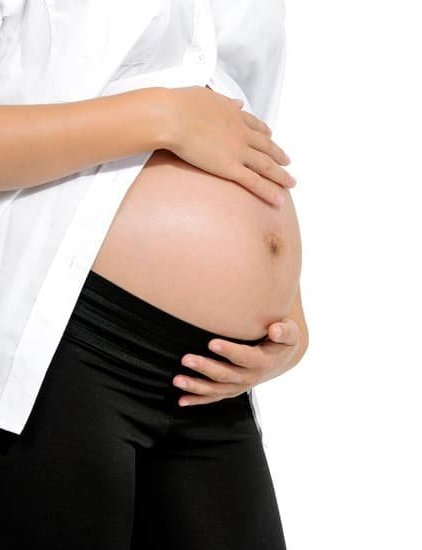Pregnancy brings many changes to a woman’s body, and one of them can be pregnancy acne. For many expecting mothers, dealing with skin issues during this time can be frustrating. When does pregnancy acne start becomes a common question among women experiencing this condition. Understanding the causes and triggers of pregnancy acne is essential to effectively manage and treat it.
During pregnancy, hormonal fluctuations can lead to an increase in sebum production, which can clog pores and result in acne breakouts. This change in hormone levels, particularly an increase in androgens, is often the primary culprit behind pregnancy acne. Additionally, stress, genetics, and skincare products can also contribute to the development of acne during pregnancy.
Typically, pregnancy acne can start as early as the first trimester and may continue throughout the duration of the pregnancy. However, some women may not experience any skin issues during this time while others may find their acne worsening as they progress through their pregnancy. Understanding when does pregnancy acne start is crucial in order to take preventive measures and seek appropriate treatment if necessary.
What Causes Pregnancy Acne?
During pregnancy, hormonal changes can lead to an increase in oil production in the skin, causing pores to become clogged and leading to acne breakouts. The surge in hormones like progesterone can overstimulate the skin’s sebaceous glands, resulting in more oil being produced than usual.
This excess oil can mix with dead skin cells and bacteria, leading to the development of acne. Additionally, the increase in blood flow during pregnancy can also contribute to the redness and inflammation associated with acne.
Another factor that may contribute to pregnancy acne is stress. Pregnancy itself can be a stressful time for many women due to physical changes, concerns about childbirth, or other factors. Stress triggers the release of cortisol, known as the stress hormone, which can exacerbate acne by increasing inflammation in the body and worsening existing breakouts.
It is important to note that not all pregnant women will experience acne during their pregnancy. Some women may find that their skin clears up during this time due to hormonal changes having a positive effect on their complexion. However, for those who do experience pregnancy acne, it is essential to understand the underlying causes and explore safe treatment options to manage breakouts effectively while ensuring the health and safety of both mother and baby.
| Causes of Pregnancy Acne | Effects |
|---|---|
| Hormonal changes leading to increased oil production | Clogged pores and acne breakouts |
| Stress triggering cortisol release | Inflammation worsening existing breakouts |
When Does Pregnancy Acne Typically Start?
Pregnancy acne, also known as hormonal acne, is a common skin condition that affects many expectant mothers. It is important to understand when pregnancy acne typically starts in order to effectively manage and treat it. Typically, pregnancy acne can start to appear during the first trimester of pregnancy when hormonal changes are at their peak.
During the first trimester, the body experiences a surge in hormones, particularly androgens, which can lead to an increase in sebum production. This excess oil can clog pores and result in breakouts on the face, neck, chest, and back. While some women may not experience pregnancy acne until later in their pregnancies, it is important to be mindful of any changes in your skin during this time.
To help manage and prevent pregnancy acne from worsening, consider incorporating the following tips into your skincare routine:
- Keep your skin clean by washing it twice daily with a gentle cleanser.
- Avoid using harsh products or scrubbing your skin too vigorously.
- Use oil-free and non-comedogenic moisturizers to keep your skin hydrated without clogging pores.
- Be gentle with your skin and avoid picking or squeezing pimples to prevent scarring.
- Consult with your dermatologist for safe treatment options if needed.
By being proactive about caring for your skin and understanding the timing of when pregnancy acne typically starts, you can help minimize breakouts and maintain healthy-looking skin throughout your pregnancy journey. Remember that every woman’s experience with pregnancy acne may vary, so it is essential to consult with a healthcare provider or dermatologist if you have concerns about managing this condition effectively.
Common Myths About Pregnancy Acne
Pregnancy acne is a common skin condition that affects many expecting mothers. However, there are several myths surrounding this issue that can often cause confusion and misinformation. One common myth is that pregnancy acne is only experienced in the first trimester of pregnancy. In reality, pregnancy acne can occur at any point during pregnancy due to hormonal changes.
Another myth about pregnancy acne is that it is an indication of the baby’s gender. Some people believe that if a pregnant woman experiences acne during her pregnancy, she may be having a girl because girls “steal their mother’s beauty.” This belief has no scientific basis and is simply an old wives’ tale.
Additionally, there is a misconception that all acne medications are unsafe to use during pregnancy. While some medications may not be recommended for pregnant women, there are safe options available for treating pregnancy acne. It is important to consult with a healthcare provider or dermatologist before using any products to ensure they are safe for you and your baby.
| Myth | Fact |
|---|---|
| Pregnancy acne only occurs in the first trimester | Pregnancy acne can happen at any point during pregnancy |
| Acne indicates the baby’s gender | There is no scientific link between acne and baby gender |
| All acne medications are unsafe during pregnancy | Safe options exist but consult with healthcare provider first |
Tips for Preventing Pregnancy Acne
During pregnancy, hormonal changes can lead to the development of acne, causing distress for many women. Fortunately, there are steps that can be taken to help prevent pregnancy acne or reduce its severity. Here are some tips to consider:
- Proper skincare routine: Maintaining a gentle and consistent skincare routine is essential in preventing pregnancy acne. Use a mild cleanser and avoid harsh exfoliants that can irritate the skin.
- Hydration: Staying hydrated is important for overall skin health. Drinking an adequate amount of water can help keep your skin hydrated and clear.
- Healthy diet: Eating a balanced diet rich in fruits, vegetables, and whole grains can contribute to clearer skin during pregnancy.
As hormones play a significant role in pregnancy acne, it is also crucial to manage stress levels through relaxation techniques like yoga or meditation. Stress can exacerbate hormonal imbalances and lead to breakouts. Additionally, avoiding touching or picking at your face can help prevent further irritation and inflammation.
Incorporating these tips into your daily routine can make a significant difference in preventing pregnancy acne or managing existing breakouts effectively. Remember to consult with your healthcare provider before trying any new skincare products or treatments during pregnancy to ensure they are safe for you and your baby.
Safe Treatment Options for Pregnancy Acne
Pregnancy is a beautiful journey for many women, but it can also come with some less-than-desirable side effects, one of which is pregnancy acne. Dealing with acne during this hormonal time can be frustrating, especially when one may not know what products are safe to use. Finding the right treatment options for pregnancy acne is essential to ensure both the health of the mother and baby.
Gentle Cleansers
When it comes to treating pregnancy acne, opting for gentle cleansers that are specifically formulated for sensitive skin is crucial. Look for products that are free from harsh chemicals like salicylic acid or retinoids, as these ingredients may not be safe during pregnancy. Instead, choose cleansers with natural ingredients like tea tree oil or witch hazel to help combat acne without harming your skin or baby.
Moisturize Adequately
Keeping your skin hydrated is essential in managing pregnancy acne. Look for oil-free and non-comedogenic moisturizers to avoid clogged pores and further breakouts. Ingredients like hyaluronic acid and glycerin can help maintain moisture levels in the skin without causing irritation or aggravating existing acne.
Natural Remedies
For those who prefer a more natural approach to treating pregnancy acne, there are several safe options available. Tea tree oil has antimicrobial properties that can help reduce inflammation and kill bacteria on the skin. Aloe vera gel is another gentle remedy that can soothe irritated skin while promoting healing. However, it’s always best to consult with your healthcare provider before using any new products or remedies during pregnancy to ensure they are safe for you and your baby.
By incorporating these safe treatment options into your skincare routine, you can effectively manage pregnancy acne without compromising your health or the well-being of your unborn child. Remember that every woman’s experience with pregnancy acne is different, so it’s important to find what works best for you while keeping safety a top priority throughout this special time in your life.
Skincare Routine for Pregnancy Acne
During pregnancy, hormonal changes can lead to an increase in sebum production, which can clog pores and result in acne. Developing a proper skincare routine is essential for managing pregnancy acne without compromising the health of the mother and baby. Experts recommend gentle and safe products that are specifically formulated for pregnant women to target acne while avoiding harmful ingredients.
When it comes to choosing products for a skincare routine during pregnancy, it is important to opt for non-comedogenic and fragrance-free options. Cleansing the face twice a day with a gentle cleanser can help remove excess oil and prevent breakouts. Incorporating an exfoliant containing ingredients like glycolic acid or lactic acid can help unclog pores and improve skin texture without being too harsh on sensitive skin.
Moisturizing is also crucial in maintaining skin hydration and preventing dryness, which can actually trigger more oil production and worsen acne. Look for lightweight, oil-free moisturizers that won’t clog pores but will still provide adequate moisture. Sunscreen is another important step in any skincare routine, as unprotected sun exposure can exacerbate pigmentation changes often associated with pregnancy acne. Choosing a mineral-based sunscreen with at least SPF 30 is recommended by dermatologists.
How Pregnancy Acne Can Impact Self-Esteem
Pregnancy acne can have a significant impact on self-esteem for expectant mothers. The physical changes that come with pregnancy, such as weight gain, hormonal fluctuations, and of course, acne breakouts can all contribute to feelings of self-consciousness and decreased confidence. This added stress can be especially challenging at a time when women are already experiencing a wide range of emotions due to the hormonal shifts that accompany pregnancy.
Emotional Effects
The emotional effects of pregnancy acne can vary from person to person, but many women report feeling embarrassed or frustrated by their changing skin. Acne breakouts can be not only physically uncomfortable but also mentally taxing.
Some women may find themselves avoiding social situations or feeling less inclined to take part in activities they once enjoyed due to concerns about their appearance. These feelings of self-doubt can take a toll on mental well-being during what is already an emotionally charged time.
Coping Strategies
It’s important for pregnant individuals dealing with acne to remember that the condition is temporary and that it does not define their worth or beauty. Seeking support from loved ones, friends, or healthcare providers can help alleviate feelings of isolation and provide reassurance during this challenging time.
Engaging in self-care practices such as meditation, exercise, or hobbies that bring joy can also be beneficial in maintaining a positive mindset while navigating pregnancy acne. Remembering that self-esteem comes from within and is not solely based on external factors like physical appearance can help pregnant individuals weather the storm of pregnancy acne with grace and resilience.
When to See a Dermatologist for Pregnancy Acne Treatment
Pregnancy acne is a common skin issue that many expectant mothers face during their journey to motherhood. Understanding the causes and when it typically starts can help women navigate this skin condition with ease. Pregnancy acne usually begins in the first trimester, due to hormonal changes leading to increased oil production and clogged pores. However, some women may also experience it later in their pregnancy due to fluctuating hormones.
One of the common myths about pregnancy acne is that it indicates the gender of the baby. This is simply not true, as acne during pregnancy is often just a result of hormonal changes rather than a predictor of whether you’re having a boy or girl. To prevent pregnancy acne, maintaining a good skincare routine is crucial. This includes gentle cleansing, using non-comedogenic products, and avoiding harsh chemicals that can irritate your skin further.
In some cases, pregnancy acne can impact a woman’s self-esteem as she navigates other physical and emotional changes during this time. Seeking support from loved ones and practicing self-care can go a long way in boosting confidence and managing stress levels.
If over-the-counter treatments don’t work, it’s important to consult with a dermatologist for safe and effective treatment options tailored to your specific needs. Remember, taking care of yourself both physically and emotionally is key during this special time in your life.
Frequently Asked Questions
How Early Can Pregnancy Acne Start?
Pregnancy acne can start as early as the first trimester due to hormonal changes in the body. For some women, it may appear within a few weeks of conception, while others may experience it later in pregnancy.
What Do Pregnancy Pimples Look Like?
Pregnancy pimples can vary in appearance just like regular acne. They may present as whiteheads, blackheads, papules, pustules, or cysts on the face, neck, chest, and back. Some women also notice an increase in oily skin during pregnancy.
When Does Period Acne Start?
Period acne typically starts around the time of menstruation when hormonal fluctuations occur. This type of acne is often characterized by breakouts on the chin, jawline, and around the mouth. It usually clears up once hormone levels stabilize after the period ends.

Welcome to my fertility blog. This is a space where I will be sharing my experiences as I navigate through the world of fertility treatments, as well as provide information and resources about fertility and pregnancy.





